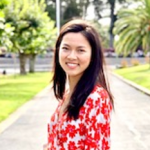When Life-Saving Medicines Are Ammunition in a Trade War

Dr. Jingyi Liu, clinical fellow in medicine, Brigham & Women’s Hospital
In early January, I held a telemedicine visit with a patient who reported a positive at-home COVID test and mild shortness of breath.
During the visit, I looked through her health conditions and medications and decided that it was appropriate to prescribe Paxlovid. Later that day, she received the prescription from her local pharmacy, free of charge.
Afterwards, I called my elderly grandparents. They live in Wuhan, China, where the COVID-19 pandemic began. They have been confined to their neighborhood for the last three years.
Shortly after China’s started to relax its Zero COVID policy in December, my grandparents both were infected with COVID. Between weak breaths, my grandfather described to me over WeChat how he and my grandmother spent hours visiting different pharmacies just to find a bottle of acetaminophen, the over-the-counter pain reliever. He told me that the only way to get a prescription of Paxlovid was on the back market, at a cost of 50,000 RMB, or more than $7,000. My family’s prior attempts to send a care package with personal protective equipment and over-the-counter anti-fever medications had been confiscated at border control.
I work as a doctor at one of the most well-resourced healthcare systems in the United States. I have never had a patient who needed a COVID drug but was unable to obtain it. While I remember what it was like to treat patients before we had COVID vaccines and therapeutics, that memory is fading.
That is, until my loved ones contracted COVID half a world away.
China lifted its zero COVID policy after civil discontent rocked major cities from Beijing to Shanghai. It’s no surprise that the virus spread like wildfire after the policy was lifted, given China’s average population density is four times that of the United States. For a country that has zero approved mRNA vaccines, only one foreign antiviral (Paxlovid) and little herd immunity, a surge led to more than 900 million cases of COVID over a few weeks, as well as a coffin shortage.
While domestic COVID vaccines are available and the government reports that its COVID vaccination rate is around 90%, it’s widely believed that these domestic vaccines are less efficacious than the foreign-produced mRNA vaccines. In addition to having less efficacious vaccines, patients in China also have fewer treatment options once they’ve been infected with COVID. Paxlovid is approved but its availability is highly controlled. Corroborating my family’s description of the challenges of finding life-saving drugs, WeChat, a Chinese social media platform, exploded with dealers selling questionable supplies of “Paxlovid”.
At a price of $7,000 per course, Paxlovid was hopelessly inaccessible for ordinary people like my family.
COVID exposed and deepened healthcare inequities not only domestically, but also internationally. If the pandemic has taught us anything, it’s that illness has no borders. Yet, it is also apparent that access to life-saving medicines like COVID vaccines and therapeutics depends in large part on where you live.
If China continues to favor home-grown medications over foreign-produced but more efficacious treatments and vaccines, I am concerned that this will have a negative public health impact in China. Given the current tense state of US-China trade relations, the supply of effective treatments will continue to be controlled in the name of nationalism. Drug approvals will continue to be weaponized in a race to become the next global superpower.
This is the current dynamic in the COVID pandemic, but the same dynamics could easily restrict access to other important medicines.
When life-saving medicines are used as ammunition in a trade war, ordinary people get caught in the crossfire. This is a kind of war that no one wins.



